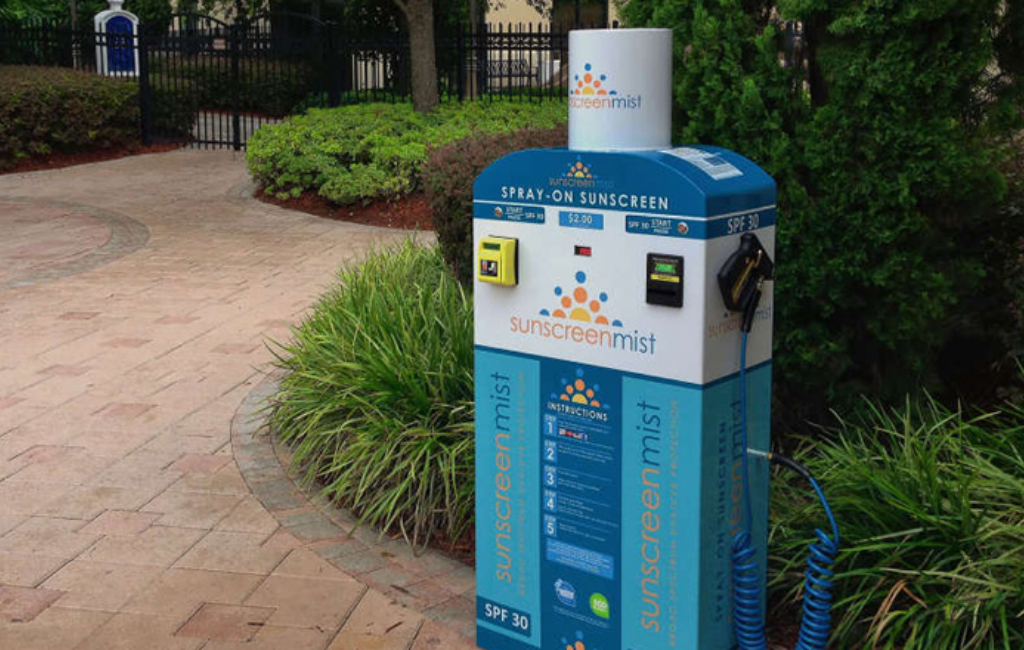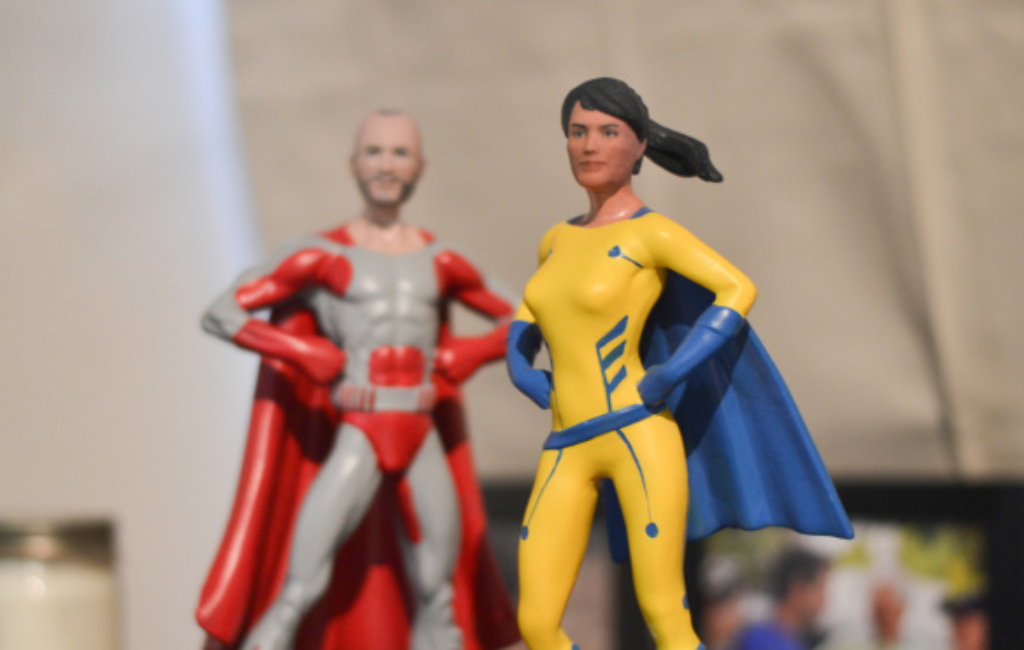SynDaver Labs Synthetic Model Body
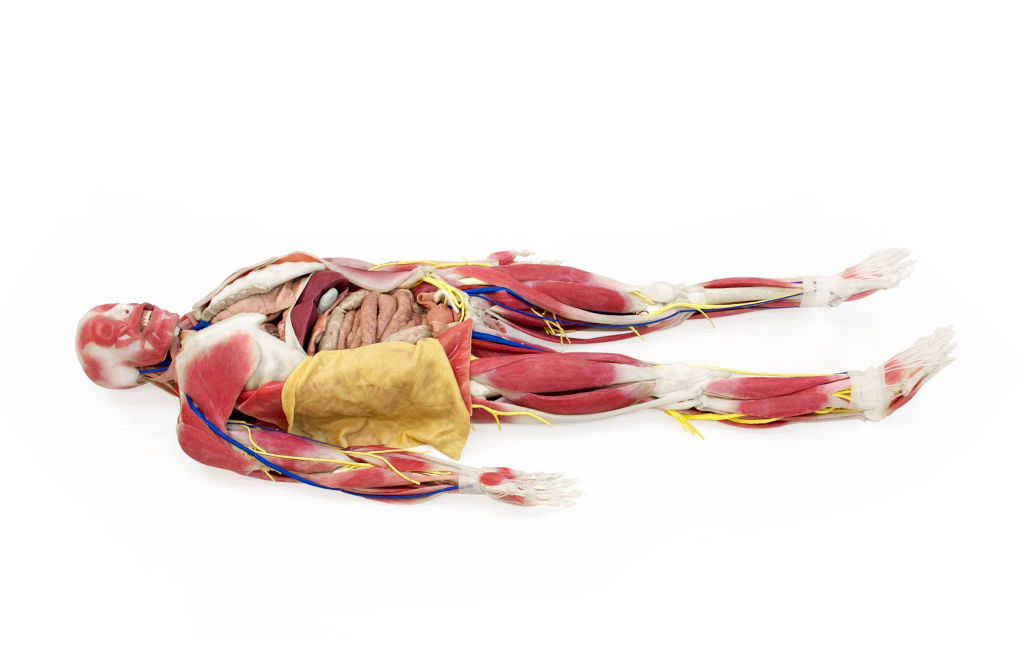

DEAL
EPISODE SUMMARY
🕓 Air Date: May 8, 2015
Asking For:
$3,000,000 for 10%
Investor:
Robert Herjavec
Deal:
$3,000,000 for 25%
PRODUCT SUMMARY
SynDaver Labs designs and builds synthetic human tissues and body parts made from salt, water, and fiber, used in medical training as an alternative to live animals and human cadavers.
WATCH HERE
IN A RUSH?
Click these to jump to the section you want to read.
Background Story
Dr. Christopher Sakezles, the founder and CEO of SynDaver Labs, has a rich background in science and engineering. With a PhD in polymer science, a master’s degree in material science, and a bachelor’s degree in mechanical engineering, he possesses a unique blend of expertise. The journey of SynDaver Labs began approximately a decade ago in Dr. Sakezles’ garage. The impetus for SynDaver Labs emerged from Dr. Sakezles’ experience with the exorbitant costs associated with animal testing in medical studies.
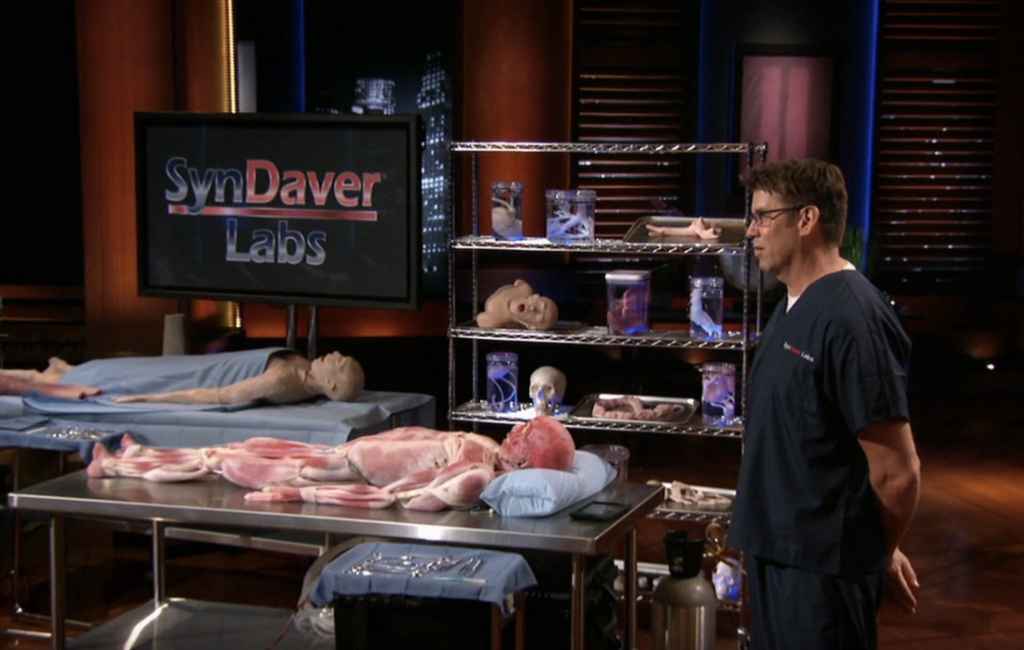
As a scientist, he had previously engaged in animal testing, recognizing the significant expenses incurred due to the involvement of various professionals such as anesthesiologists and veterinarians, as well as the facilities required for housing the animals. Driven by a desire to offer a more humane and cost-effective alternative for medical training, Dr. Sakezles embarked on the development of synthetic human tissues and body parts. SynDaver Labs designs and constructs these innovative products, utilizing materials such as salt, water, and fiber that mimic the properties of human tissue.
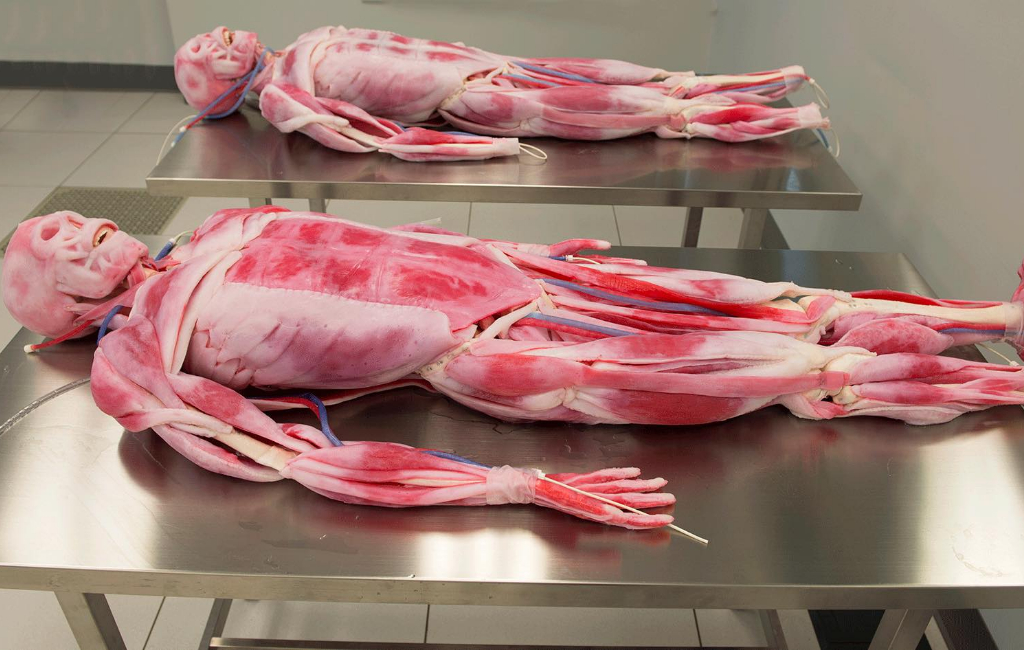
The flagship product, the SynDaver Synthetic Human, is a sophisticated model featuring every muscle, bone, and organ found in natural human anatomy. Dr. Sakezles emphasizes the significance of these synthetic alternatives in medical education, trauma training, and the development of medical devices. The development process spanned two decades, during which the company honed the technology, resulting in a product that feels like live tissue and is reusable.
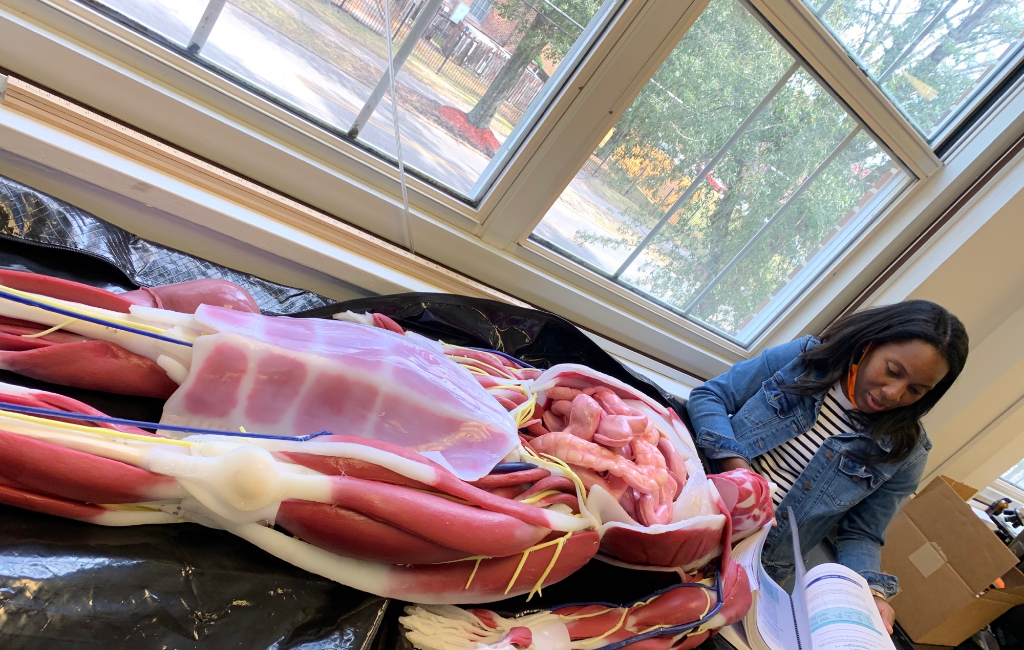
The Product
SynDaver Labs’ flagship product, the SynDaver Synthetic Human, stands as a groundbreaking advancement in medical training and education. Crafted from a combination of salt, water, and fiber, this synthetic model replicates the properties of human tissues with remarkable accuracy. Featuring every muscle, bone, and organ found in natural human anatomy, the model provides an unparalleled tool for surgical training, trauma simulation, and the development of medical devices.
The design of the SynDaver Synthetic Human allows for a wide range of medical procedures, making it a versatile and reusable alternative to live animals, human cadavers, and even human patients. Surgeons and medical professionals can perform various surgeries, utilizing the model’s 3D jigsaw puzzle-like structure. The synthetic tissues, composed of approximately 85% water, closely mimic the feel of live tissue, providing a realistic training experience.
SynDaver Synthetic Human is a high-value investment, costing $40,000. This price point, though higher than traditional cadavers, is justified by the model’s reusability, offering a cost-effective solution over time. The product’s unique features and benefits position it as an essential tool in advancing medical education, minimizing reliance on live subjects and contributing to the development of skilled and proficient medical professionals.
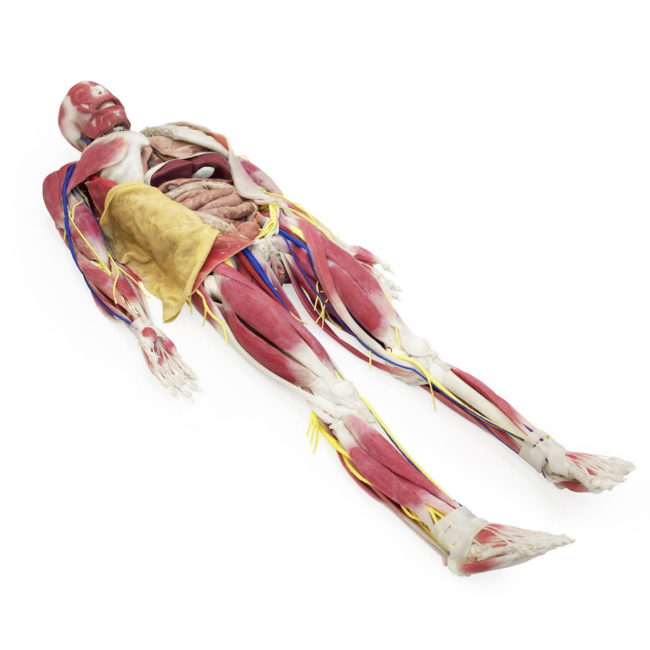
How It Went
The company’s position before Shark Tank
SynDaver Labs has demonstrated a robust performance in the medical training and education sector, positioning itself as a pioneer in the development of synthetic human tissues and body parts. With $10 million in lifetime sales and a notable achievement of $5 million in the last year alone, the company has exhibited consistent growth. Sales have been doubling annually, reflecting the increasing recognition and demand for their innovative products. The company’s strategic partnerships and collaborations have played a crucial role in its success. The acknowledgment of a joint venture competing for $150 million in U.S. business next year suggests SynDaver Labs’ involvement in lucrative ventures.
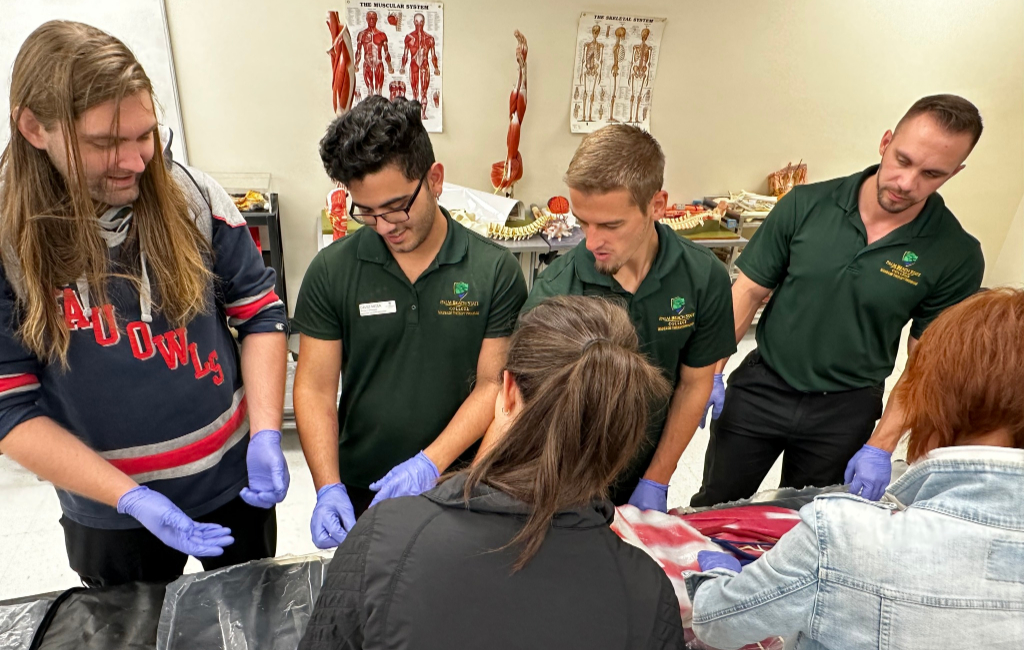
These partnerships likely contribute to the company’s overall revenue and market presence. The uniqueness of SynDaver Labs’ products, highlighted by being the only company globally with 10 issued patents covering the technology, positions them as leaders in the field. In terms of funding, the company’s valuation during the Shark Tank pitch indicates a desire for a $3 million investment in exchange for 10% equity, showcasing a confidence in the company’s potential for future growth. The negotiation resulted in a deal with Robert Herjavec, who invested $3 million for a 25% stake in SynDaver Labs.
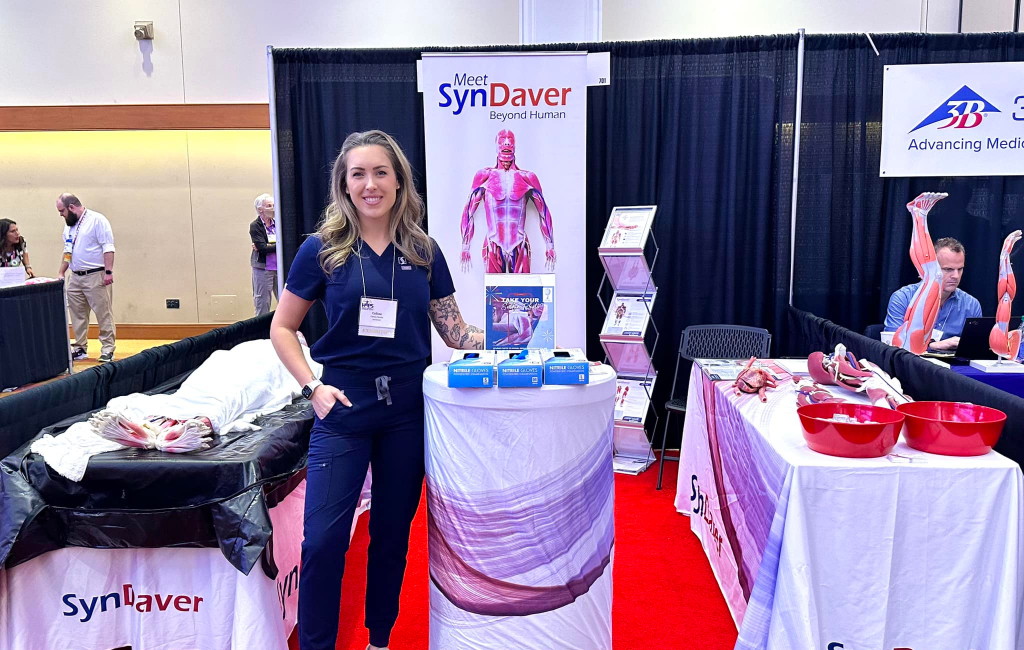
The available capital, after the investment, will likely be channeled towards further research and development, expanding market reach, and potentially hiring professionals to strengthen the business aspect of the company. The structure of the company is not explicitly detailed, but the need for a business-oriented partner, emphasized during the negotiations, suggests a recognition of the importance of balancing scientific innovation with effective business management. The infusion of capital from the Shark Tank deal is expected to propel SynDaver Labs to new heights, contributing to advancements in medical training and education.
The Negotiations:
The negotiations for SynDaver Labs on Shark Tank unfolded as a complex exchange of ideas and valuations. Dr. Christopher Sakezles, the founder, entered seeking a $3 million investment for a 10% equity stake in his innovative company. The Sharks, however, expressed concerns about the valuation and the founder’s apparent prioritization of long-term impact over immediate profits. Kevin O’Leary and Lori Greiner were skeptical, questioning the company’s valuation in relation to its sales figures. Mark Cuban and Robert Herjavec, on the other hand, recognized the uniqueness of the product and the potential for growth.
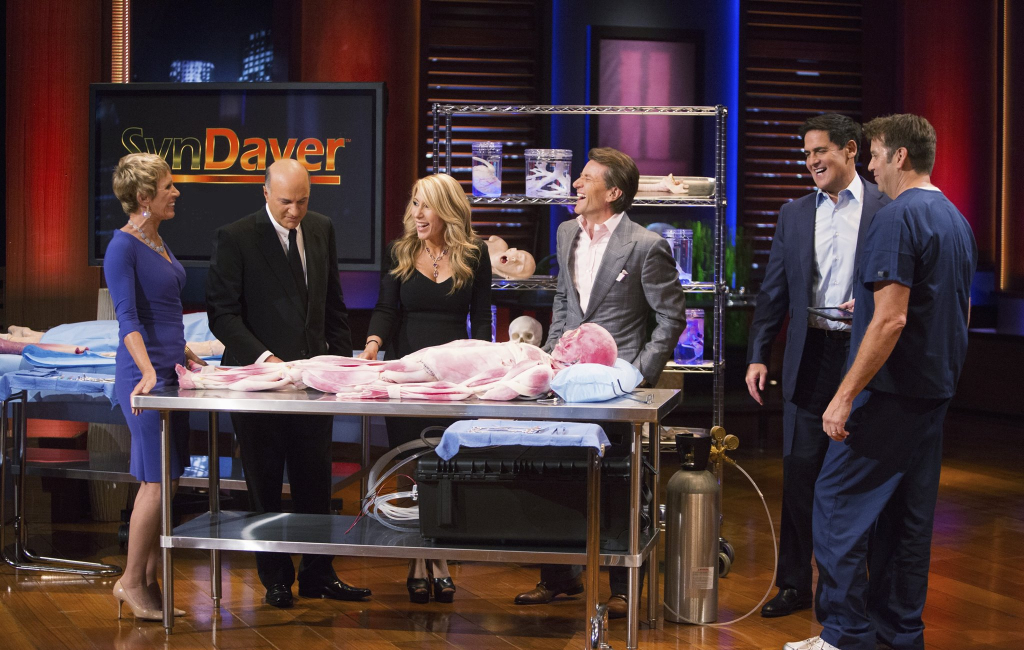
Herjavec eventually made an offer of $3 million for a 25% stake, intending to bring his business acumen to the table. The negotiation highlighted the challenge of balancing the founder’s passion for research and development with the need for a more business-focused approach. O’Leary and Greiner dropped out, expressing concerns about the founder’s commitment to profitability. Cuban and Herjavec, understanding the potential but recognizing the need for a strategic partner, made offers. The negotiations took an interesting turn when Herjavec, after being turned down for a 35% stake, increased his offer to $3 million for 25%, which Dr. Sakezles accepted.
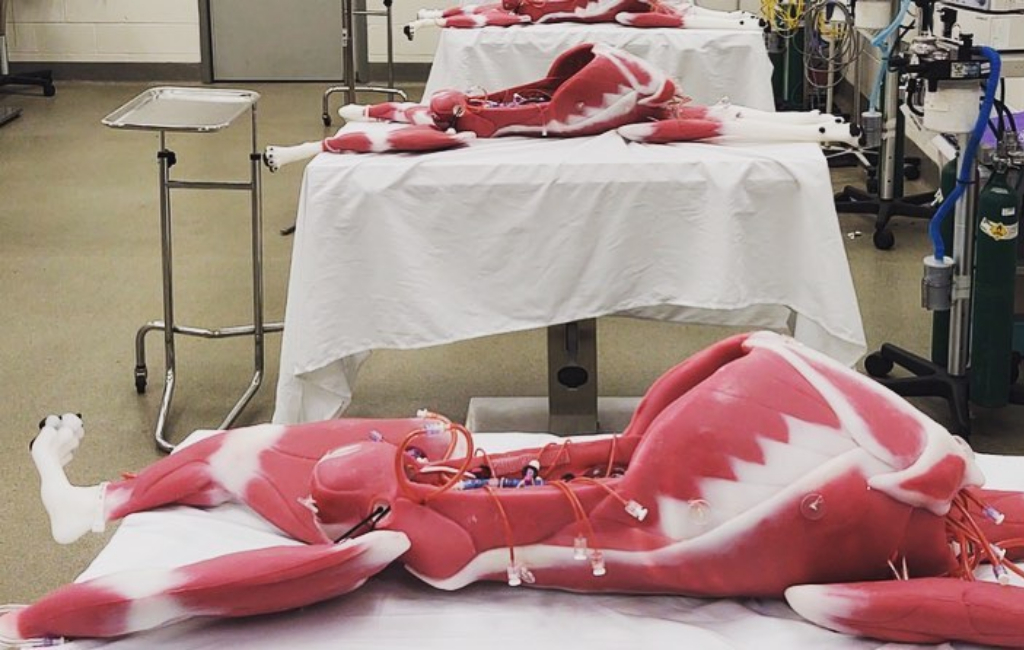
The negotiation revealed the founder’s commitment to maintaining a significant portion of the company while recognizing the value of Herjavec’s experience in steering the business forward. The deal was closed with Herjavec securing a 25% stake in SynDaver Labs for his $3 million investment. This negotiation showcased the delicate balance between scientific innovation and business strategy, with the Sharks ultimately recognizing the potential impact of SynDaver Labs’ synthetic human tissues in the medical training and education industry.






